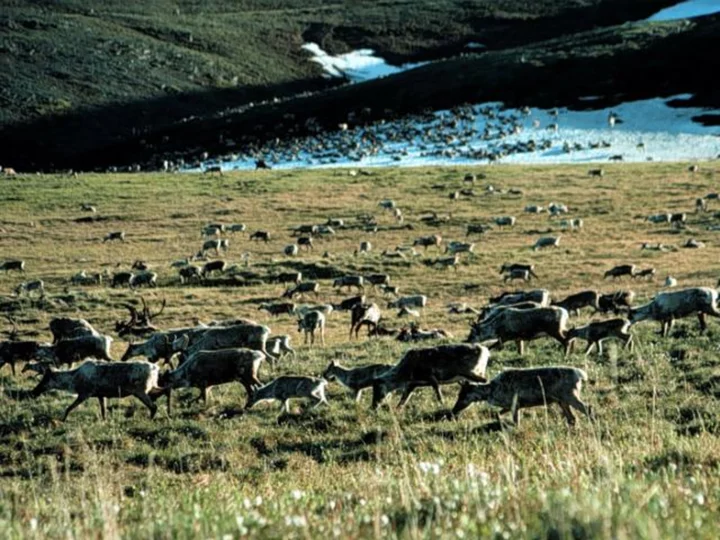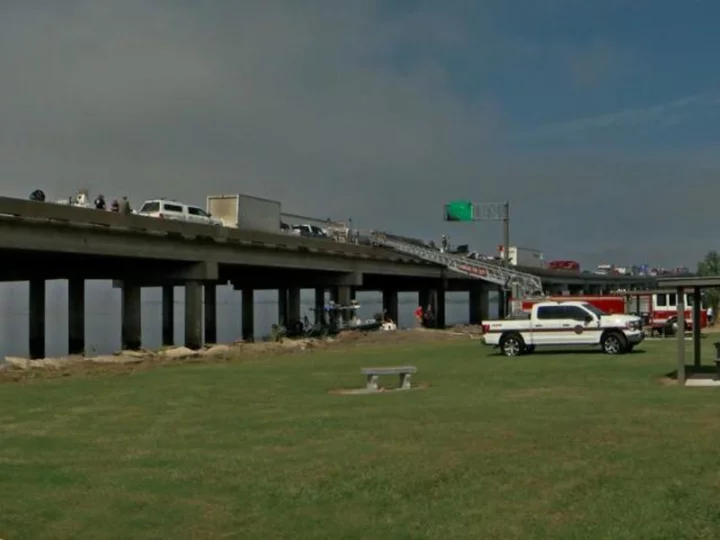The Biden administration announced Wednesday it will cancel seven Trump-era oil and gas leases in the Arctic National Wildlife Refuge and protect more than 13 million acres in the federal National Petroleum Reserve in Alaska, stymieing a years-long attempt to drill in the protected region.
The cancellation will affect Alaska's state-owned oil development agency, the Alaska Industrial Development and Export Authority, which bought the leases covering about 365,000 acres on ANWR's Coastal Plain during the Trump administration.
"With today's action, no one will have rights to drill for oil in one of the most sensitive landscapes on Earth," Interior Secretary Deb Haaland told reporters on a press call. "Public lands belong to all Americans, and there are some places where oil and gas drilling and industrial development simply do not belong."
The 2017 GOP tax bill opened a small part of the pristine wildlife refuge for drilling, a measure championed by Alaska Sen. Lisa Murkowski, a Republican. But it was never developed or drilled -- or came close to doing so. Haaland suspended the leases in June 2021, and some major oil companies, including Chevron, canceled their leases in the area the following year.
However, the 2017 tax law mandates leasing in ANWR, meaning the Biden administration will have to launch a new leasing process and hold another lease sale by the end of 2024, albeit likely with tighter environmental provisions.
"We intend to comply with the law," a senior Biden administration official said, adding they didn't have a timeline for an additional lease sale apart from the law's deadline of holding one by December 2024.
The Interior Department is also proposing federal protections for 13 million acres of land in the NPR-A, limiting future oil and gas development and taking steps to implement conservation protections it announced in March, alongside the controversial Willow oil drilling project. The proposed rule would expressly prohibit new oil and gas leasing in 10.6 million acres, or over 40% of the NPR-A, according to an Interior Department press release.
The protected area would span areas including Teshekpuk Lake, Utukok Uplands, Colville River, Kasegaluk Lagoon and Peard Bay Special Areas -- home to migrating caribou, polar and grizzly bears and migratory birds.
The new regulations would also reverse a Trump-era rule expanding oil and gas development in the area and shrinking protections for habitat and animals, while also protecting subsistence hunting and gathering from Alaska Native communities who live in the area.
Haaland and White House senior adviser John Podesta pointed to the impacts of climate change quickening warming in the area.
"Alaska is ground zero for climate change," Podesta told reporters. "The Arctic is warming more than twice as fast as the rest of the planet. Today's actions help protect their future, America's future and they build on President Biden's historic climate and conservation record."
The administration's initial suspension of the leases was challenged in court by Alaska's state-owned oil developer, but AEIDA lost their lawsuit in early August.
AEIDA did not immediately respond to CNN's request for comment.
The Biden administration's move on Wednesday was cheered by environmental groups and some Democrats in Congress.
"It's a significant step to permanent protection of the Arctic refuge, but it's not mission accomplished," Rep. Jared Huffman, a Democrat from California, told CNN. "That terrible law requires them to do a leasing process, but not on a deeply flawed environmental review and not without considering more protective alternatives and the best available science."
Although Alaska Natives are split on Arctic drilling, some groups commended the Biden administration and urged Congress to undo the 2017 law mandating drilling in ANWR.
"We urge the administration and our leaders in Congress to repeal the oil and gas program and permanently protect the Arctic Refuge," Bernadette Dementieff, executive director of the Gwich'in Steering Committee, said in a statement.









